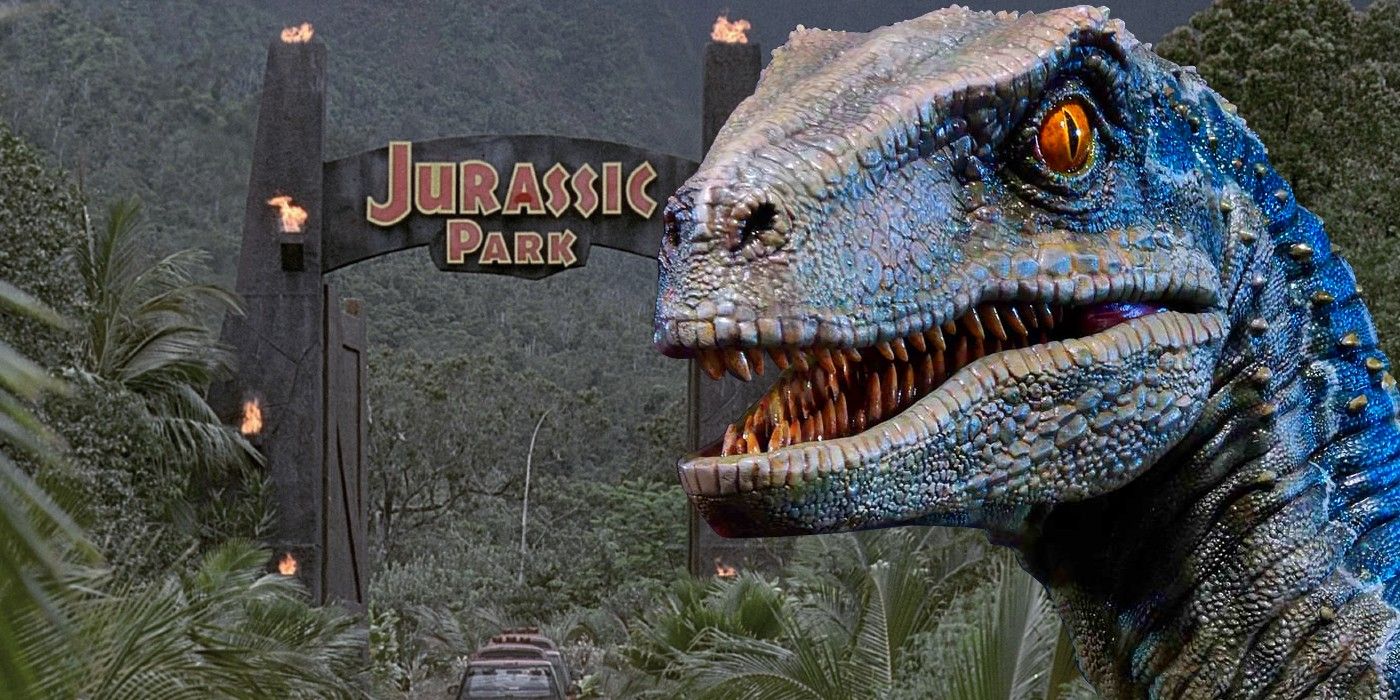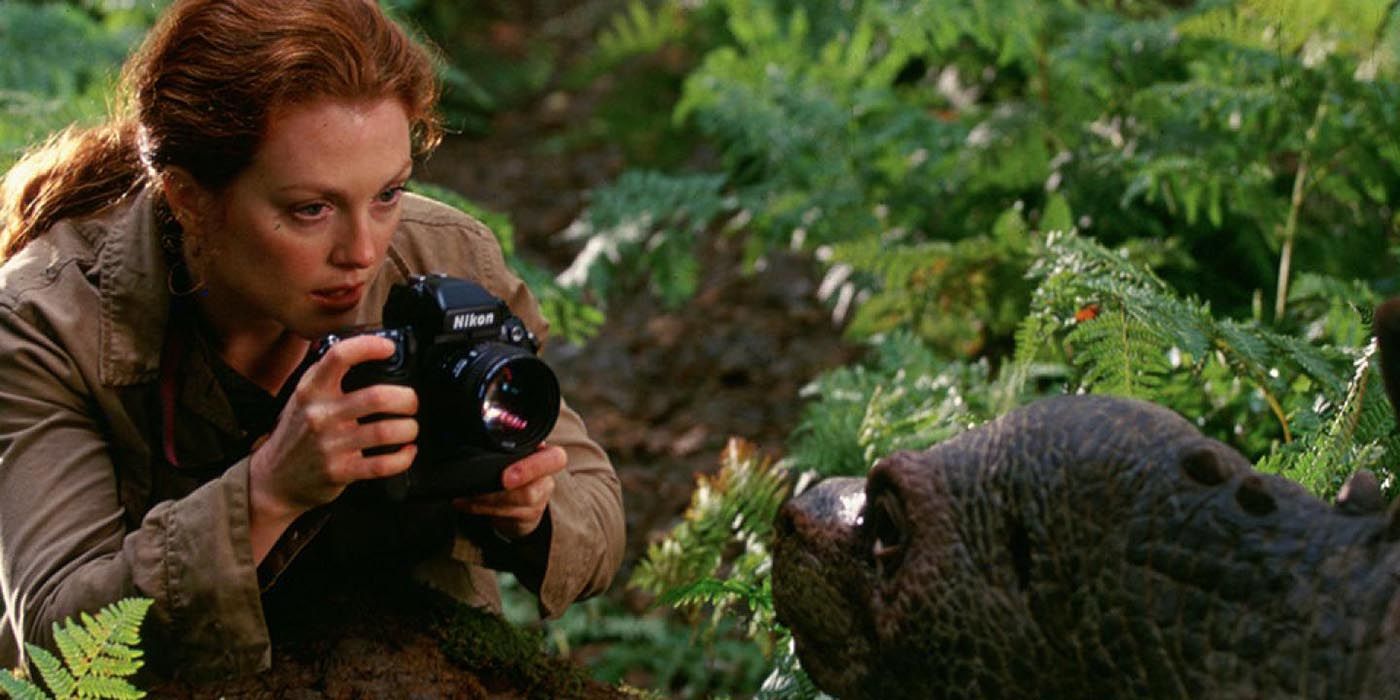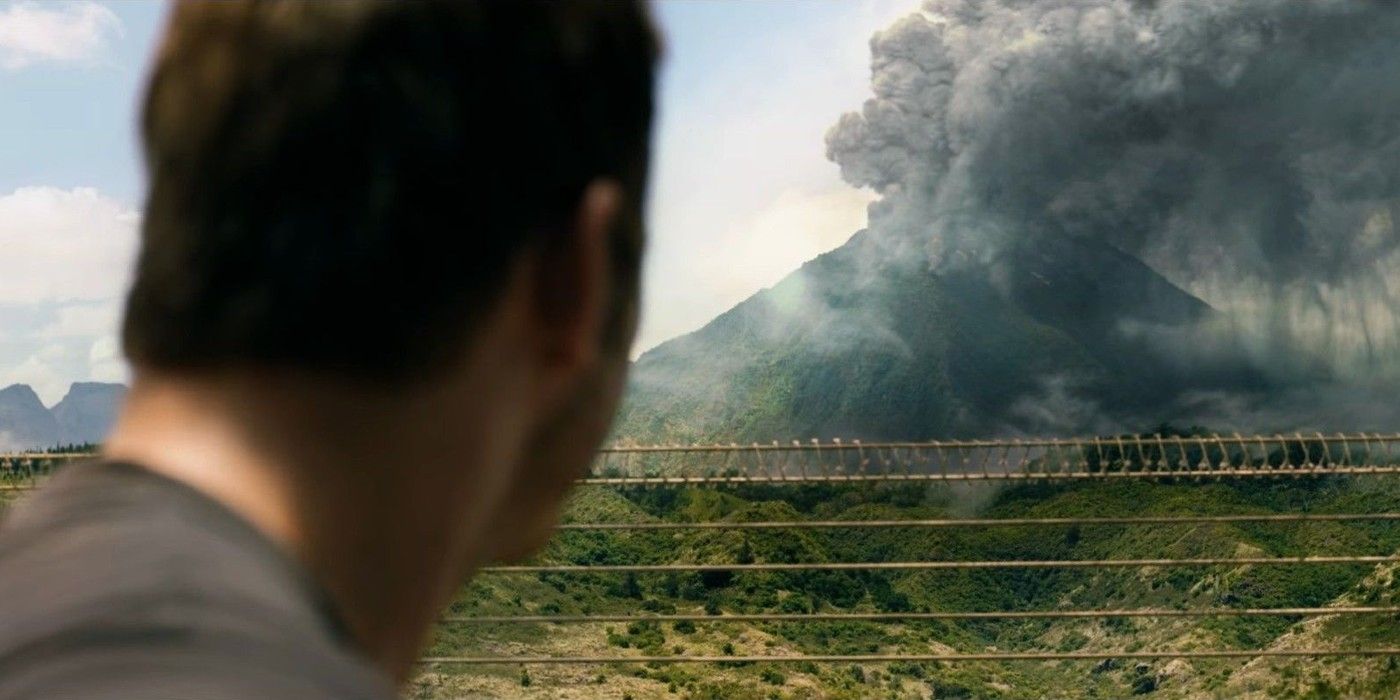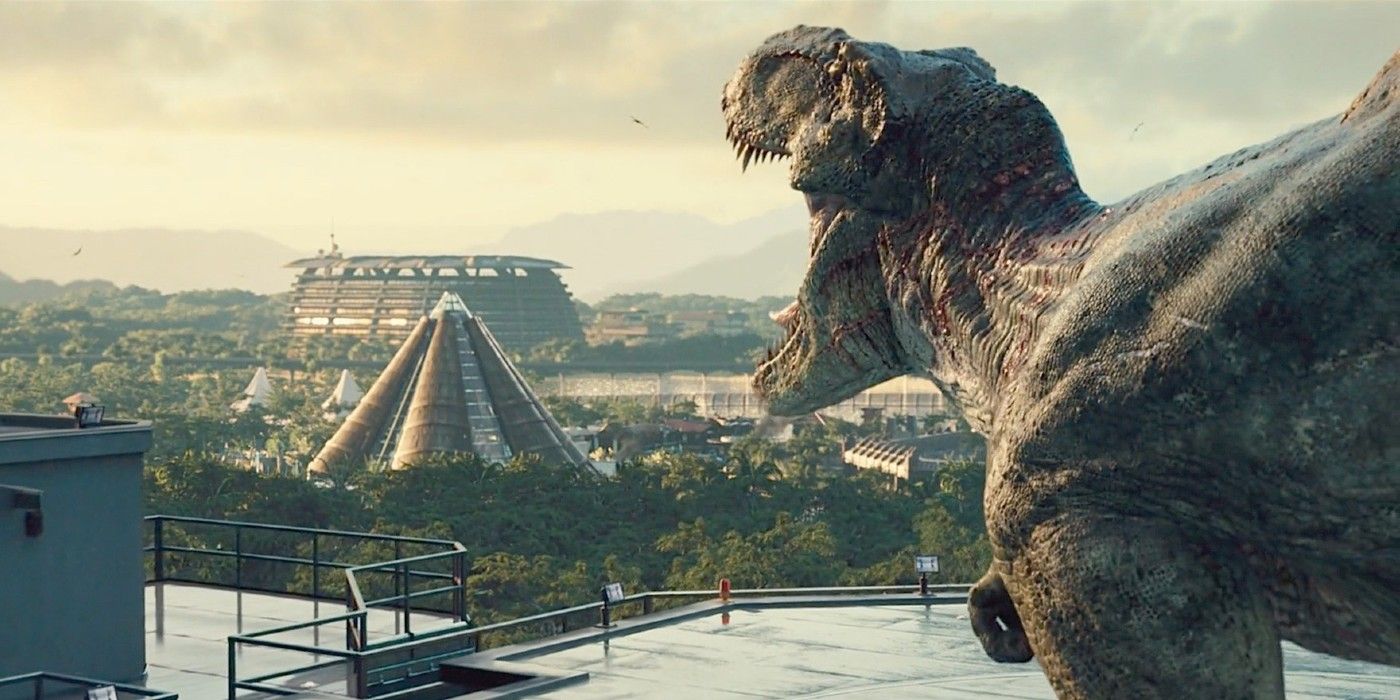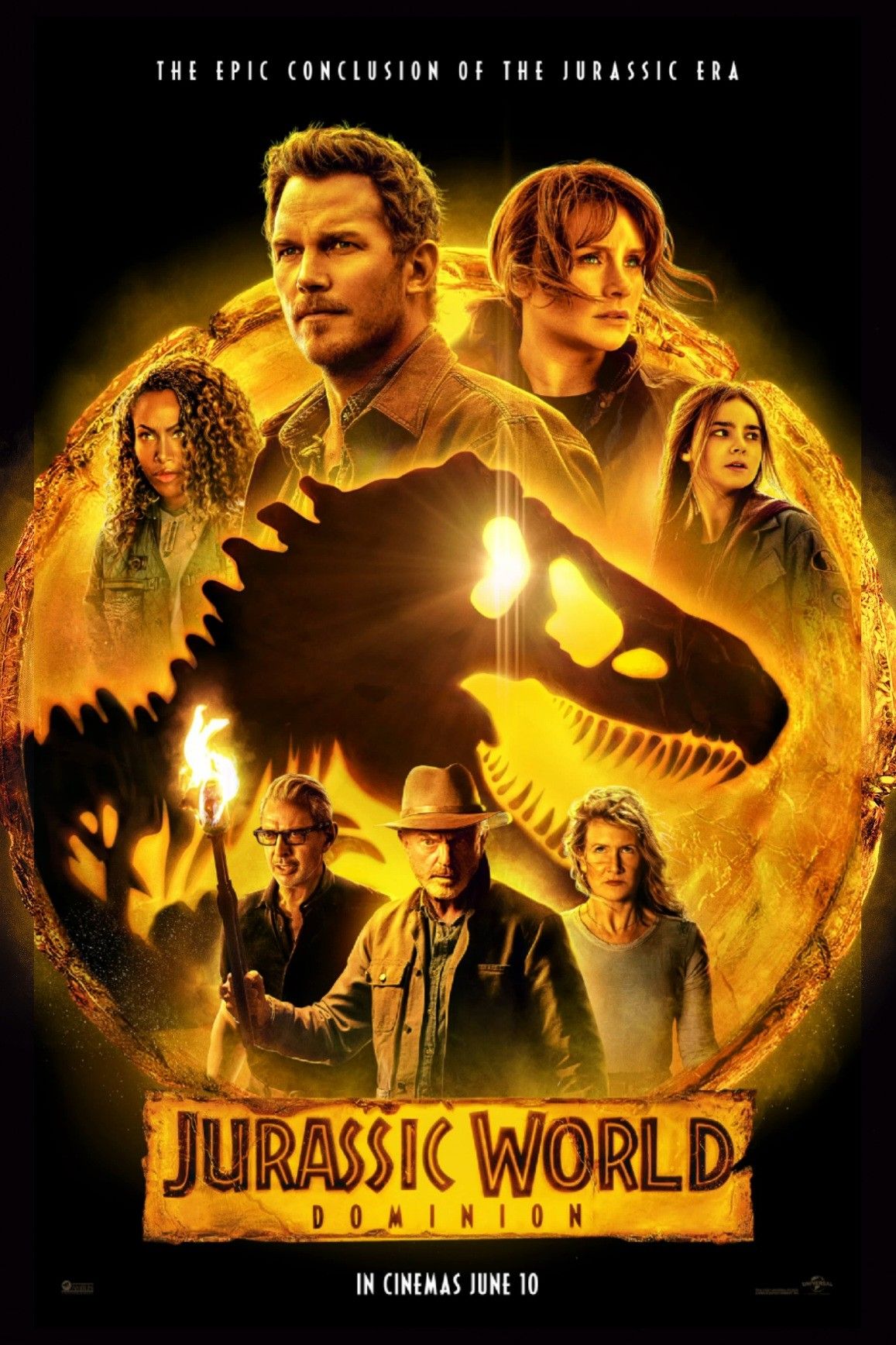There's talk of Jurassic World 3 marking the start of a new era for the Jurassic movies, but it really needs to be a proper ending. As is generally the case when franchise are revived nowadays, the Jurassic Park series was brought back in 2015 with the intention of launching additional films. Titled Jurassic World, this new installment mostly ignored the Jurassic Park sequels (but without removing them from continuity) and attempted to build upon the ideas from Steven Spielberg's original sci-fi classic by exploring what would happen if a theme park populated by cloned dinosaurs actually got up and running where the original Jurassic Park once stood on the island of Isla Nublar.
After Jurassic World grossed a massive $1.67 billion at the box office, Universal was quick to green-light a followup. Titled Fallen Kingdom, the 2018 sequel continued to follow now-former Jurassic World employees Owen Grady (Chris Pratt) and Claire Dearing (Bryce Dallas Howard) as they strive to protect said dinosaurs from being exploited by humans in the wake of a natural disaster that destroys their old habitat. The movie ended with the remaining dinosaurs of Isla Nublar being set loose in the world, paving the way for Jurassic World 3 to explore whether humans and dinosaurs can peacefully coexist and, in doing so, presumably bringing the trilogy to an end.
More recently, however, producer Frank Marshall indicated that's not necessarily the plan and described Jurassic World 3 (or, as it's officially titled, Dominion) as being the "start of a new era" for the Jurassic franchise. Obviously, from a financial perspective, it makes perfect sense for Universal to want to continue these movies, considering the first Jurassic World and Fallen Kingdom nearly grossed $3 billion in theaters combined. Creatively-speaking, though, it's not such a great idea. If anything, this desire to keep the brand going calls attention to the biggest issue's that's plagued the Jurassic movie sequels since they started.
Jurassic Park Wasn't Supposed To Be A Franchise
Unlike Jurassic World, the original Jurassic Park novel by Michael Crichton (which was published in 1990) was meant to be a one-off sci-fi cautionary tale and not the beginning of a franchise. It was only after both the book and Spielberg's 1993 movie adaptation became massive successes that Crichton bowed to the pressure and wrote The Lost World, which was then published in 1995. Interestingly, as he admitted years later, the thought of a sequel had actually crossed Spielberg's mind while he was filming the first Jurassic Park. At the time, he assumed a second movie would somehow involve the canister of dinosaur DNA Dennis Nedry had stolen and lost (shortly before he's killed by a Dilophosaurus) during the original Jurassic Park. Instead, Crichton's The Lost World novel - and Spielberg's big screen adaptation in 1997 - introduced the concept of Site B, a second location (based on the island of Isla Sorna) where the Jurassic Park dinosaurs were initially created before it was abandoned.
The lack of setup for Site B and much of what transpires during The Lost World in the original Jurassic Park (both the movie and its source material) is indicative of just how little serious thought Spielberg and Crichton had really given the idea of a sequel while bringing the story to life. This became an even bigger problem in 2001's Jurassic Park III; whereas The Lost World at least attempted to build on its predecessor by examining the ethics of what humans should and shouldn't do with these dinosaurs they've engineered, its followup did little to nothing to expand upon these themes and mostly just threw the commentary out the window in favor of lean, mean, B-movie thrills. There's nothing inherently wrong with that approach, but in the context of the larger franchise, it highlights the lack of a plan for these sequels beyond having dinosaurs terrorizing and eating people.
Jurassic Park's Story Ended With Jurassic World 2
Despite being commonly criticized for relying too much on nostalgia and featuring cardboard-thin human characters, Jurassic World and Fallen Kingdom have (arguably) both continued Jurassic Park's story in a meaningful fashion. The first Jurassic World addressed the realities of what it would actually take to keep a fully-functional dinosaur theme park up and running in the present-day - namely, corporate sponsorship and a massive team of park employees working around the clock to increase attendance numbers while maintaining safety standards until, inevitably, human greed leads to something going terribly wrong. On the surface, the film recycles a number of plot points from the previous Jurassic movies, yet in doing so it also manages to answer a question subtly posed by the ending to the original Jurassic Park: would things have gone any differently if John Hammond had opened his dinosaur park as planned? (Not so shockingly, the answer is "Probably not.")
From there, it's Fallen Kingdom that provides a full-blown ending to Jurassic Park's story by destroying Isla Nublar (via a volcanic eruption) and getting all the remaining dinosaurs off the island for good. By that point, Hammond's dream has been somewhat literally reduced to ash and it's no longer possible for someone else to come in and try rebuilding it once again. The question of what to do with the dinosaurs when they're taken off the island and brought over to the mainland isn't so much an extension of Jurassic Park's premise as it is the progressive next step forward for the narrative that began with Jurassic World. The hope, then, is Jurassic World: Dominion will offer a satisfying resolution to the dilemma posed by the final minutes of Fallen Kingdom, and leave it at that.
Jurassic World 3 Ends The New Trilogy (& Should End The Series)
Both Owen and Claire have evolved over the course of the first two Jurassic World movies (changing from incompatible co-workers to unexpected parents after they, essentially, adopt Maisie Lockwood in Fallen Kingdom's third act), so the stage has already been set for Dominion to provide a final payoff to their greater personal journeys. That goes double for Jurassic Park stars Sam Neill, Jeff Goldblum, and Laura Dern, all of whom are returning for the third Jurassic World in their classic roles. The hope, then, is the film will provide their characters with a greater sense of closure than The Lost World and Jurassic World III did, while simultaneously paying off Ian Malcolm's (Goldblum) prediction of what this "Jurassic World" will look like from his cameo appearances in Fallen Kingdom. And once audiences have seen people adjust to living alongside dinosaurs in Dominion, it's hard to say where the franchise could from there without rehashing that idea.
Of course, humanity's bad habit of repeating the mistakes of the past (as opposed to learning from them) is a recurring element of the Jurassic franchise, so it would be more than a little ironic if the series did the same thing by trying to keep things going after the Jurassic World trilogy is done. The fact Jurassic Park was mostly designed as a standalone work has caused problems for its sequels since day one, and that's unlikely to go away after Jurassic World 3 hits theaters, no matter how well it's done. No doubt, the financial incentive will still be there to keep going (save for the highly unlikely scenario where Dominion is a box office bomb), but to paraphrase Malcolm, it's not a question of whether Jurassic World 4 could happen, but whether or not it should - and from where we're standing, the answer is, yet again, "Probably not."

